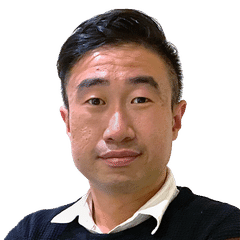Kishida, Xi vow to turn the page on fraught ties between Japan and China
Sign up now: Get ST's newsletters delivered to your inbox

Japanese Prime Minister Fumio Kishida and Chinese President Xi Jinping met on the sidelines of the Apec Summit in Bangkok, on Nov 17, 2022.
PHOTO: REUTERS
Follow topic:
TOKYO – Japan and China vowed on Thursday to jointly and properly manage risks while forging “constructive and stable ties” during their leaders’ first in-person meeting in three years.
Japanese Prime Minister Fumio Kishida and Chinese President Xi Jinping met for 45 minutes in Bangkok on the sidelines of the two-day Asia-Pacific Economic Cooperation (Apec) summit, which begins on Friday.
The two countries – Asia’s two largest economies – marked 50 years of diplomatic ties this September with little fanfare
As a result, the two leaders have barely been talking – their previous conversation was a half-hour call in October 2021 – but Thursday’s talks yielded a pledge to “communicate closely” on all levels.
They also agreed to work together in such areas as climate change, healthcare and development finance.
In his opening remarks, Mr Xi said: “The importance of China-Japan relations has not changed and will not change in the future. I want to build a relationship that fits a new era.”
Mr Kishida said that their countries have “an important responsibility to ensure the peace and prosperity of this region and the wider international community”.
The Japanese leader told reporters after the meeting that Foreign Minister Yoshimasa Hayashi will be visiting Beijing on China’s invite, though no date has yet been set.
He later told reporters that he had also expressed “grave concerns” to Mr Xi over regional security issues, such as intensifying activity around the disputed Senkaku/Diaoyu islets, Chinese ballistic missile launches, as well as tensions in the Taiwan Strait.
Japan fears that war will break out in its backyard should China take Taiwan, which it sees as a renegade province, by force. In August, China launched ballistic missiles into waters near Japan’s southern Okinawa prefecture for the first time to protest against a visit by US House Speaker Nancy Pelosi to Taiwan.
Japan’s Ministry of Foreign Affairs said the two leaders vowed to work towards launching a bilateral defence hotline “as soon as possible” to stave off accidental conflict. Defence communication will also be maintained through the Japan-China Security Dialogue.
North Korea, which on Thursday volleyed a short-range ballistic missile mere hours before Mr Xi and Mr Kishida met, was also on their agenda.
Mr Kishida expressed his concern over the blitz of missile tests that has heightened fears of a nuclear test and urged China to leverage its role as a permanent member of the United Nations Security Council to warn North Korea against further tests.
He also urged China to “play a responsible role in maintaining international peace and security” on Russia’s invasion of Ukraine, noting Russian threats to deploy nuclear weapons over Ukraine.
Mr Xi and Mr Kishida, whose home town is the atomic-bombed city of Hiroshima, agreed that “nuclear weapons should not be used and that a nuclear war should never be fought”.


